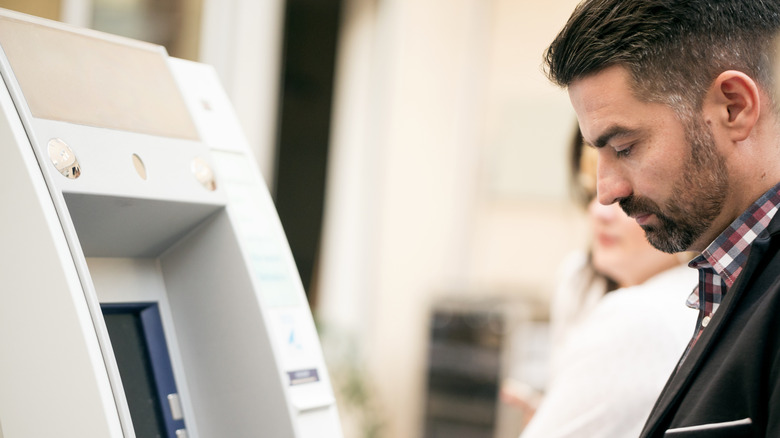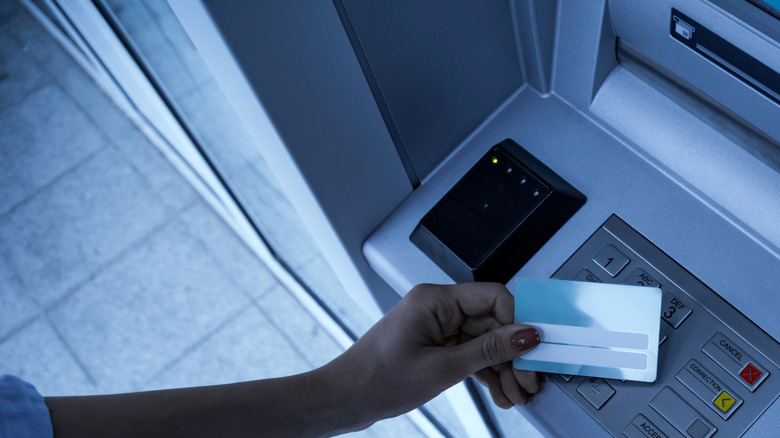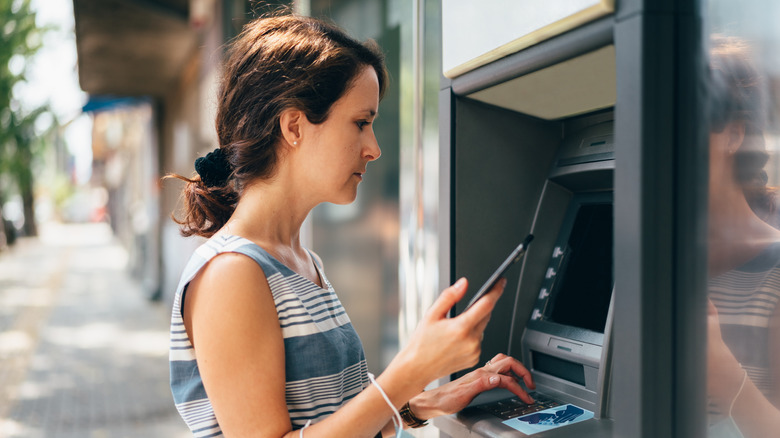How To Avoid The Popular 'Shoulder Surfing' Scam While Traveling, According To Rick Steves
We may receive a commission on purchases made from links.
It is so important when traveling to ensure your safety, and the safety of your belongings. It's helpful to practice simple tips to avoid theft while traveling, like using a money belt, carrying only a day's worth of cash in your pocket, and getting familiar with scamming techniques at different destinations.
One popular scam to keep in mind the next time you're traveling is "shoulder surfing," a technique where thieves gain sensitive information by looking over your shoulder while you use your credit card, phone, or computer. According to travel writer, activist, and TV and radio personality Rick Steves, the best way to dodge a bullet from shoulder surfers is simple: "When entering your PIN, carefully block other people's view of the keypad," he writes on his website.
Steves has lots more seemingly obvious advice for defeating shoulder surfers. "Memorize your credit card and debit card PINs," he says. "You'd be surprised how many people foolishly write these on their cards." Sometimes these scammers are even skilled enough to be able to recognize your PIN from a distance, using binoculars, or they'll have cameras installed above ATMs to pick up your PIN when you enter it. Be aware of your surroundings and practice situational awareness — it's the most important thing you can do to keep yourself safe while traveling, and it prevents scammers from stealing your information, your card, or even your wallet.
Be aware of your surroundings
Shoulder surfing scams are most commonly used at automatic teller machines (ATMs), particularly ones in tourist hotspots or in dark, secluded corners. Rick Steves has lots of tips for protecting your money while using ATMs abroad, and warns to be careful of the people around you. Be aware of your surroundings and watch out for strangers lingering too close to you at ATMs. When you find long queues at transport hubs or at the supermarket, it can be quite easy for scammers to pick up the pin code you enter, so be extra cautious. Use your hand to block their view, and better yet, it's safest to use an ATM inside the bank, which are more closely monitored than street ATMs.
Keep in mind that the scam could include suspicious individuals (even children!) pretending to help out, offer assistance, or distract you, "especially if they're in pairs," Steves explains. "A common tactic is for one person to distract you while the other grabs your cash." These scammers may pretend to sell you something, say you dropped some money that they placed at your feet, or ask you for assistance or a charitable donation. "You're most vulnerable just after you have entered your PIN and the withdrawal amount," Steves adds, so keep your wits about you.
Keep in contact with your bank
When withdrawing money from an ATM or paying at a terminal, pick locations that are secure, safe, busy, and well-lit. Stay away from ATMs that seem tampered with or have additional devices attached to them that could be skimmers. "Before inserting your card into an ATM, inspect the front of the machine (especially if it's not inside a bank)," Steves recommends. "If anything looks crooked, loose, or damaged, it could be a sign of a card-skimming device." Next, take a look around and identify any reflective surfaces, such as windows or mirrors, that can reveal your PIN to those around you.
Just in case you do get scammed, even after taking all the necessary precautions, the safest and fastest solution will be to call your bank and cancel your card. Enabling instant notifications to card transactions and payments will help you quickly realize whether someone else has access to your card. Once you receive an authorized transaction, you'll instantly be alerted and have time to contact your bank before the damage is irreparable. You can also protect your privacy while traveling by using contactless cards that do not require a PIN in the first place. Steves also suggests limiting the number of cards in your wallet to the ones you know you'll use, adding "You don't need that JCPenney card in Croatia." Too true.


